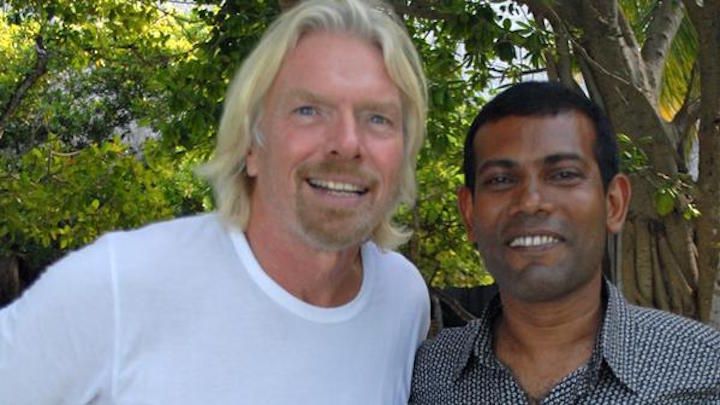“We shouldn’t rest until Mohamed Nasheed is a free man”: Richard Branson
Foreign Minister Dunya Maumoon suggested that the celebrity status of Nasheed’s lawyers has a “very big impact” on international media coverage and shapes international opinion on the opposition leader’s case.

08 Oct 2015, 09:00
Sir Richard Branson, British billionaire and founder of the Virgin Group, has renewed calls for the release of former President Mohamed Nasheed in the wake of a UN rights panel declaring his imprisonment arbitrary and illegal.
The UN Working Group on Arbitrary Detention (WGAD) has ruled that Nasheed’s conviction on a terrorism charge in March was politically motivated and violated international law. But the government last week called the judgment “flawed and premature” and said it “will not be made to act on the basis of a non-binding opinion.”
Writing on the Virgin website, Branson noted that the government is refusing to abide by the UN judgment despite engaging in the process.
“Nasheed’s pro-bono legal team say the next step will be calling on governments to impose targeted sanctions on regime officials who are guilty of human rights abuses,” he wrote.
Become a member
Get full access to our archive and personalise your experience.
Already a member?
Discussion
No comments yet. Be the first to share your thoughts!
No comments yet. Be the first to join the conversation!
Join the Conversation
Sign in to share your thoughts under an alias and take part in the discussion. Independent journalism thrives on open, respectful debate — your voice matters.




